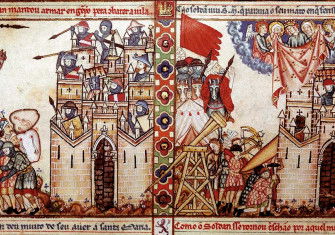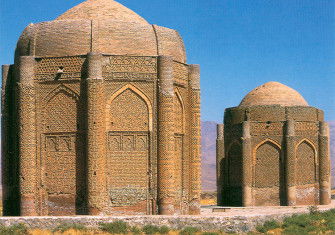Why Didn’t The Crusades Succeed?
The reasons for the brevity of the Latin presence in the 12th-century Eastern Mediterranean.

The history of the Crusades and the establishment of Latin Christian (Frankish) ‘Crusader States’ along the Eastern Mediterranean littoral has proved enduringly fascinating. Many publications tell the familiar, three-stage story, beginning with the crusaders’ initial successes in conquering Jerusalem in 1099 and the establishment of four Crusader States. Then there is the almost total annihilation of those states after Saladin’s reconquest of Jerusalem in 1187 and, finally, the weaker, lingering presence of the Kingdom of Jerusalem until the eventual fall of Acre in 1291.
Nicholas Morton’s new book draws our attention to the first few decades of the Crusader States’ existence in the early 12th century, in order to shift the question away from the ultimate brevity of the Latin presence in the Eastern Mediterranean, and asks instead: ‘Why didn’t they succeed?’ An answer is suggested through a narrative of the Franks’ ultimately unsuccessful efforts down to 1128 to conquer Aleppo and, in particular, their defeat at the Battle of the Field of Blood, fought in 1119 between the armies of Roger of Salerno, the ruler of Antioch, and Ilghazi, the then new ruler of Aleppo. This book is not, however, a study of one particular battle. Instead, this battle is used as the central point in a discussion of the history of Syria and the Crusader States to 1128 (followed by a final chapter that brings the narrative up to 1187).
Morton offers an impressive overview and does a particularly good job of highlighting the relative strength of some of the Crusader States over that period and the important role that they could play in regional politics. One good example highlighted is when the Frankish ruler of Antioch allied with a number of local Muslim rulers to oppose an army sent by the Seljuq sultan in 1115. An array of sources from a variety of confessional and linguistic backgrounds helps make it clear that, in the history of the Crusader States, Christians were not always on one side and Muslims on the other.
It is unfortunate that Morton never clarifies what ‘success’ might actually have meant to the rulers and inhabitants of the Crusader States in this period. When he concludes, for example, that ‘Complete victory remained a realisable outcome at least until the 1170s’, we have to wonder what – if anything – the many rulers (and would-be rulers) whose stories Morton tells would have considered a ‘complete victory’. Nonetheless, this book offers an admirable and effective overview of many aspects of a crucial period in the history of the Crusader States.
The Field of Blood: The Battle for Aleppo and the Remaking of the Medieval Middle East
Nicholas Morton Basic Books
288pp £22.99
Buy from bookshop.org (affiliate link)
Harry Munt is Lecturer in Medieval History at the University of York.






